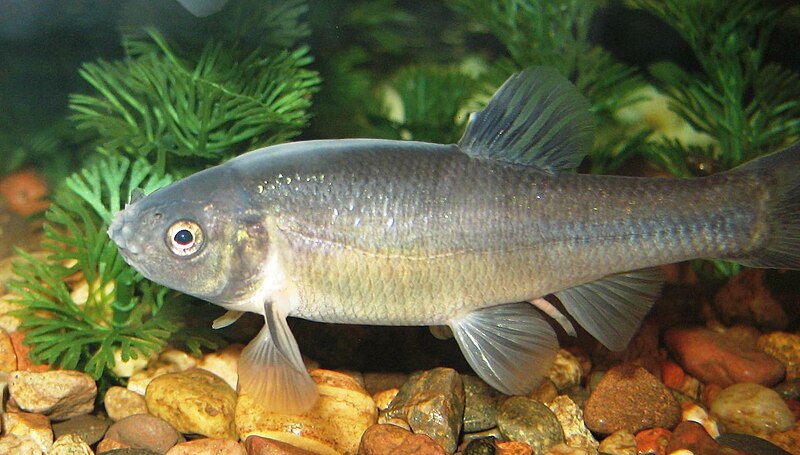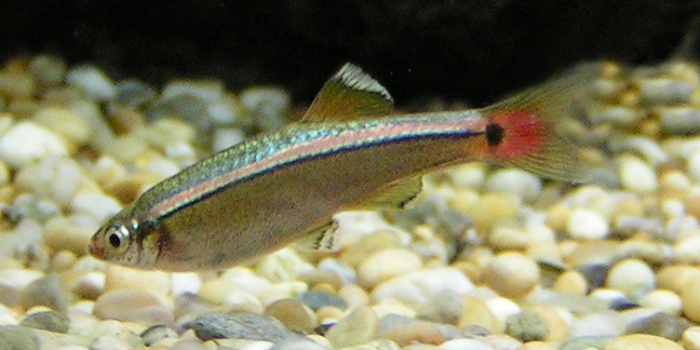 |
| Fathead minnow (Pimephales promelas)--a small baitfish and both a cyprinid and a leuciscin. Image by former Wikipedia user Rankin1958. Distributed under Creative Commons ShareAlike 3.0. |
If you forced a fish biologist to choose a group of fishes that fits the term (and you would have to force them, for the reasons given in the previous paragraph), they would probably choose either the carp family, cyprinidae, or a subgrouping of the cyprinids known as leuciscinae. All of the baitfishes that anglers commonly refer to as "minnows" are classified within leuciscinae, but this group has the disadvantage of being nastily esoteric when compared to the entire carp family. When the definition is extended to include all of the cyprinids, we can also add the "topminnow" (Poeciliopsis occidentalis) and the "white cloud mountain minnow" (Tanichthys albonubes), among other less famous minnows. Generally speaking, context will determine whether reference is being made to the cyprinid family or a smaller group within it.
 |
| White Cloud Mountain Minnow (Tanichthys albonubes)--A cyprinid, but not a leuciscinid. Photo by sannse. Distributed under Creative Commons ShareAlike 3.0. |
Of course, minnows can also be any type of small fish. Since the term was not created with taxonomy in mind, this is also a perfectly acceptable usage.
The set of minnows is indeed a fuzzy one, and we may have to settle on deciding that while some fishes definitely are minnows, no fishes definitely are not, and the matter has much more to do with popular usage of the word than evolutionary relatedness. To the linguistics mobile!
No comments:
Post a Comment